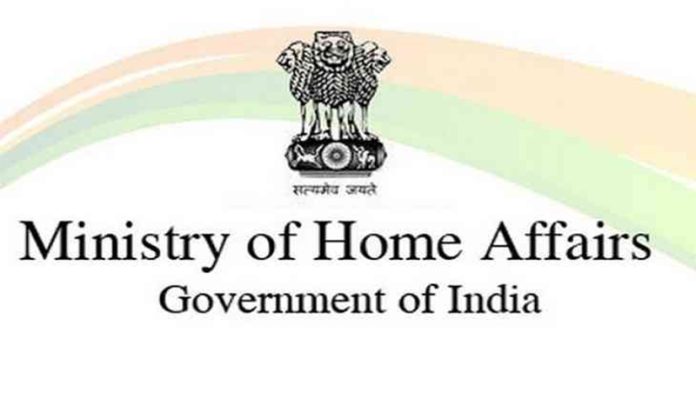Home Ministry’s year-end review
Excelsior Correspondent
JAMMU, Dec 31: Parliament nod to two crucial bills granting reservation to Other Backward Classes (OBCs) for the first time in Jammu and Kashmir and nomination of two Kashmiri Pandits including a woman and one from Pakistan occupied Jammu Kashmir (PoJK) refugees and security situation in Jammu and Kashmir including review meetings held by Union Home Minister Amit Shah found a prominent mention in year-end review of the MHA, released today.
“This is a bill to give rights and representation to displaced people, by giving reservation to displaced Kashmiris. They will have voice in the Kashmir Assembly and if a situation of displacement arises again, they themselves will stop it,” the year-end review quoted Shah as saying in the Parliament during passing of the bill.
Two Kashmiri Pandits, one of them a woman, will be nominated to the UT Assembly after the elections.
Similarly, the reservation to OBCs for which the bill was passed by the Parliament and assent given by the President, also got a prominent space in the MHA’s year-end review. The bill granted reservation to OBCs in educational institutions and Government jobs for the first time in Jammu and Kashmir.
However, percentage of the reservation is yet to be fixed.
The Jammu and Kashmir Government has also amended the Panchayati Raj Act granting reservation to OBCs in the Panchayats.
As far as security situation in Jammu and Kashmir is concerned, the MHA’s year-end review mentioned about series of security review meetings chaired by Home Minister Amit Shah on Jammu and Kashmir and situation.
Reconstruction of Maa Sharda’s temple in Kupwara was also mentioned in the year-end review. Shah inaugurated Maa Sharda Devi temple at Kupwara through video conferencing on March 22, 2023.
Sharda Peeth has been a historical centre of India’s cultural, religious and educational heritage, like Kartarpur Corridor. Government under Prime Minister Narendra Modi will move forward to open Sharda Peeth for devotees.
A long-delayed peace agreement with the pro-talks faction of the United Liberation Front of Asom (ULFA) at the fag-end of the year has given a firm indication that the Home Minister Amit Shah-led Ministry is serious about resolving the problems that have affected the Northeast for decades and claimed many lives.
A major crisis came to the fore on May 3 when ethnic violence erupted in Manipur after a ‘Tribal Solidarity March’ was organised in the hill districts of the Northeastern State to protest against the majority Meitei community’s demand for Scheduled Tribe status.
A series of confidence-building measures were taken including the constitution of a judicial inquiry committee, financial aid to the victims and sending additional troops.
On August 11, Home Minister Amit Shah introduced in Parliament – Bharatiya Nyaya Sanhita, Bharatiya Nagarik Suraksha Sanhita and the Bharatiya Sakshya Bill – aiming to completely overhaul the century-old Indian Penal Code, 1860 (IPC), Code of Criminal Procedure, 1973 (CrPC) and the Indian Evidence Act of 1872.
The bills were subsequently referred to the Department-related Parliamentary Standing Committee on Home Affairs on August 18 for a thorough review.
All the legislations were withdrawn during the just concluded winter session of parliament after the standing committee suggested a number of changes. The Home Minister reintroduced the bills on December 12. They were passed by both houses of Parliament on December 21 and got the presidential assent on December 25.
The new laws have given a clear definition of terrorism, abolished sedition as a crime and introduced a new section titled “Offences against the State”.
The Bharatiya Nyaya Sanhita lists offences such as acts of secession, armed rebellion, subversive activities, separatist activities or endangering the sovereignty or unity in the new avatar of the sedition law.
According to the laws, anyone purposely or knowingly, by words, either spoken or written, or by signs, or by visible representation, or by electronic communication or by use of financial means, or otherwise, excites or attempts to excite secession or armed rebellion or subversive activities is liable to be punished.
It also included anyone who, by such actions, encourages feelings of separatist activities or endangers the sovereignty or unity and integrity of India.
The punishment is life imprisonment or a jail term that may extend to seven years and the convict shall also be liable to fine.
Under IPC Section 124A, which deals with sedition, a convict may be punished with life imprisonment or a three-year jail term.
Under the new laws, ‘Rajdroh’ has got a new term ‘Deshdroh’, thus doing away with the reference to the British crown.
The Magistrate’s power to impose fines has been increased as well as the scope of declaring a proclaimed offender.
Shah had said the three new laws were drafted after comprehensive consultations and that he had gone through “every comma and full stop” of the draft legislation before bringing them to the House for approval.
Once considered to be a key threat to internal security, Left Wing Extremism (LWE) or the Naxal problem has been brought under control to a large extent.
According to Home Ministry data, in the last 10 years, the incidents of Naxal violence have come down by 52 per cent, deaths in these incidents declined by 70 per cent and the number of affected districts has come down from 96 to 45 and LWE hit police stations from 495 to 176.
As many as 199 new security forces camps have also been established in the LWE-affected areas since 2019.
On December 1, Union Home Minister Amit Shah said that India was “on the verge of” eliminating Naxalism and the Modi Government is “determined” to win this battle.
“The last strike against LWE by forces like the BSF, CRPF and ITBP is in the process. We are determined to end Naxalism in the country. I am sure we will win this battle,” he said.


